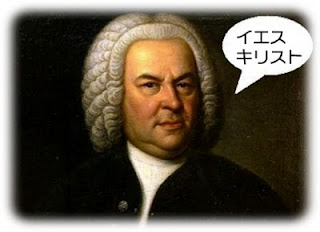 |
| Unintended missionary to Japan? |
No other country in the developed world keeps as many palm readers busy. None produces as much pornography; nearly half the worlds smut is made in Japan—and openly consumed in trains and subways. Suicide rates have risen from 23,000 in 1996 to 25,000 in 1997 and 32,000 in 1998. In that year, seventy–four children killed themselves in Tokyo alone, twice as many as in 1997. According to opinion polls, 60 percent of the population admit to being afraid every day. Most fear bringing shame on their families, teachers, or superiors by failing at work or in school.
“What people need in this situation is hope in the Christian sense of the word, but hope is an alien idea here,” says the renowned organist Masaaki Suzuki, founder and conductor of the Bach Collegium Japan. He is the driving force behind the “Bach boom” sweeping Japan during its current period of spiritual impoverishment. “Our language does not even have an appropriate word for hope,” Suzuki says. “We either use ibo, meaning desire, or nozomi, which describes something unattainable.” After every one of the Bach Collegium’s performances Suzuki is crowded on the podium by non–Christian members of the audience who wish to talk to him about topics that are normally taboo in Japanese society—death, for example. “And then they inevitably ask me to explain to them what ‘hope’ means to Christians.”
Like Georg Christoph Biller, Leipzig’s current Thomaskantor and Bach’s sixteenth successor in that position, Suzuki sees himself as a missionary. “I am spreading Bach’s message, which is a biblical one,” he said, echoing the Swedish theologian and Lutheran archbishop Nathan Söderblom (1866–1931), who called Bach’s music “the fifth Gospel.” A member of the Reformed Church, Suzuki makes sure his musicians, mostly non–Christians, get that point. During rehearsals he teaches them Scripture. “It is impossible to say how many of my performers and listeners will ultimately become Christians, ” Suzuki said. He believes, however, that Bach has already converted tens of thousands of Japanese to the Christian faith.

1 comment:
Thank you so much for posting this!
Here is a link to a brief video concerning Bach's personal Bible:
http://being.publicradio.org/programs/pelikan/ss_bachsbible/ss-bachsbible.shtml
Post a Comment